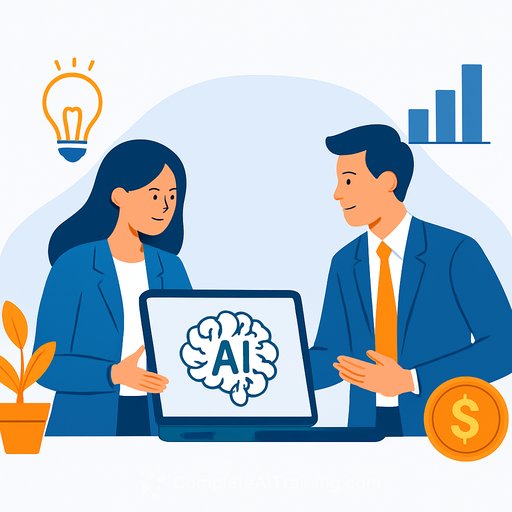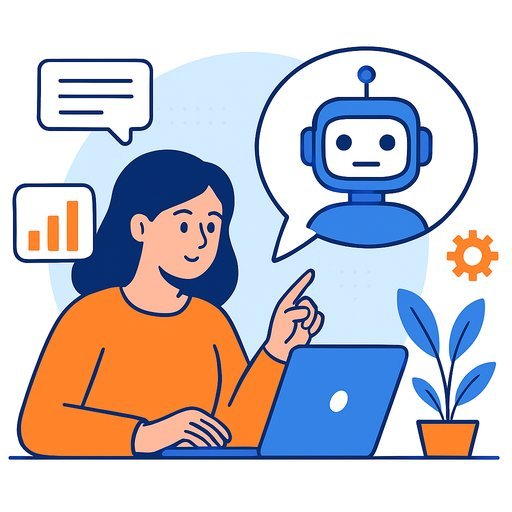How AI Is Helping Education Companies in Bellevue Cut Costs and Improve Efficiency
Summary: Education companies in Bellevue are using AI tools like Copilot, Khanmigo, and Govstream.ai to reduce administrative time by around 30% and save teachers nearly 6 hours each week. This enables faster facility approvals, automated grading, personalized lessons, and data-driven decisions, all while focusing on privacy, equity, and teacher skill development. The Puget Sound tech ecosystem supports these innovations, making Bellevue a leader in practical AI adoption for K–12 and higher education.
Streamlining Administrative Processes in Bellevue's Education Sector
The City of Bellevue’s pilot with Govstream.ai applies AI to simplify permitting and facilities planning workflows. The AI acts as a “smart assistant,” linking codes, GIS data, and past permit records to automate routine checks and provide location-specific guidance. This reduces back-and-forth communication and improves application accuracy, targeting a 30% reduction in staff time spent on pre-application inquiries.
For education companies and schools, this means faster facility approvals, clearer guidance for contractors, and more staff time freed for instructional support instead of paperwork. The pilot includes privacy safeguards and analytics to monitor backlog, accuracy, and equity as the system evolves.
Personalized Learning and Curriculum Development in Bellevue
Local education leaders use AI-driven tools like PowerSchool's Schoology and PowerBuddy to reduce teacher workload and tailor instruction. AI-generated lessons and assessments cut content creation from about an hour to five minutes. Integrated with Microsoft Azure OpenAI, these tools offer continuous student support while maintaining teacher control and data security.
PowerSchool’s approach encourages step-by-step AI adoption—starting with pilots, then training, and finally full integration with existing learning management systems. This method protects equity and teacher autonomy while scaling personalized learning.
Human-Centered AI and Ethical Guidelines in Bellevue Schools
AI deployment in Bellevue schools focuses on privacy, equity, and transparency. Tools are designed to assist teachers rather than replace them. Resources like a K–12 prompt library provide ready-made prompts for lessons and assessments, demonstrating responsible AI use in content creation.
Districts pair AI with clear policies on student data, model explainability, and role redesign to help staff adapt to new workflows and safeguard instructional quality. Equity requires regular audits, stakeholder feedback, and training so educators can critically assess AI outputs and integrate tools ethically.
Training and Upskilling Educators with AI Programs in Bellevue
Bellevue educators are gaining practical AI skills through local programs such as Bellevue College’s AAS-T in Artificial Intelligence and BAS in Software Development with an AI focus. These programs cover applied Python, statistical algorithms, natural language processing, and human–AI interaction evaluation.
Available in hybrid formats and WIOA-eligible, these courses provide districts and education companies with accessible options to reskill staff, meet compliance, and build expertise for curriculum personalization and administrative automation.
Improving Teacher Efficiency and Reducing Costs Using AI
AI tools help teachers automate grading, lesson prep, and administrative tasks, saving an average of 5.9 hours per week statewide. Bellevue educators report success with Copilot for grading, Khanmigo for multilingual lesson generation, and AI assistants like MagicSchool AI that reduce after-hours work.
These tools enable more personalized learning experiences for diverse students. Practical implementations include AI grading systems, lesson generators, and administrative bots that improve feedback quality and redirect teacher time to student support. Clear policies and training ensure equitable adoption.
AI-Driven Data Analytics for Decision Making in Bellevue Education
Bellevue education organizations use AI analytics to make sense of large datasets and improve safety, resource allocation, and student support. For example, the City’s Vision Zero program analyzed millions of road-user data points using machine vision to identify crash risks and guide improvements.
Education case studies show predictive analytics and natural language processing tools can flag at-risk students and automate feedback. Governance practices—like documented data provenance, continuous monitoring, and human oversight—help balance effectiveness with equity and privacy.
The Role of Bellevue's AI Ecosystem in Supporting Education Innovation
Bellevue’s AI ecosystem, fueled by Microsoft, research institutions, and startups, connects talent, vendors, and governance frameworks that education institutions rely on to improve outcomes and reduce costs. Partnerships like Microsoft’s Skill-Up with Bellevue College offer blended learning and credentials aligned with workforce needs.
The region’s concentration of AI jobs, research labs, and investment provides schools and companies with access to cloud platforms and technical expertise for secure, scalable AI deployments. Initiatives emphasize responsible AI use with a focus on educator wellbeing, data privacy, and ongoing workforce training.
Conclusion: The Future of AI in Bellevue’s Education Sector
Bellevue’s education providers are piloting AI solutions that speed administrative tasks and cut costs while maintaining equity and privacy. The city’s partnership with Govstream.ai shows how municipal-scale AI experimentation can inform education sector automation.
For successful adoption, schools should establish clear policies on privacy, bias mitigation, and teacher oversight. Upskilling programs focused on AI prompt-writing and workplace skills equip educators to supervise AI tools and redirect saved time toward student services. This balanced approach positions Bellevue to achieve efficiency gains without sacrificing learning quality.
Frequently Asked Questions
- How are Bellevue education companies using AI to cut costs and improve efficiency?
They automate administrative workflows such as permitting and facilities planning with tools like Govstream.ai. Classroom tasks benefit from AI-generated lessons and assessments (PowerSchool/Schoology), automated grading (Copilot), and student support assistants (Khanmigo), freeing teacher time and reducing workload. - What local pilots and partnerships demonstrate practical AI benefits in Bellevue?
The City of Bellevue’s Govstream.ai pilot automates permitting checks. PowerSchool’s AI integrations provide rapid lesson generation. Workforce training partnerships between Microsoft and Bellevue College support skill development, while municipal programs apply AI analytics for safety and operational improvements. - How can Bellevue schools implement AI responsibly?
By focusing on human-centered design, clear data policies, and teacher-led deployment. Stepwise adoption includes piloting, training, and integrating AI with routine audits, stakeholder engagement, and continuous monitoring to ensure equity, transparency, and educator control. - What training options are available for Bellevue educators?
Bellevue College offers AI-focused degrees teaching applied skills like Python and NLP. Shorter practical courses, including bootcamps on prompt-writing and workplace AI skills, provide accessible upskilling pathways. - What impacts and governance should district leaders track when deploying AI?
Key metrics include time savings, approval rates, backlog reduction, output accuracy, equity measures, and privacy compliance. Governance should include data provenance documentation, ongoing monitoring, human oversight, and transparent accountability frameworks.
Your membership also unlocks:





